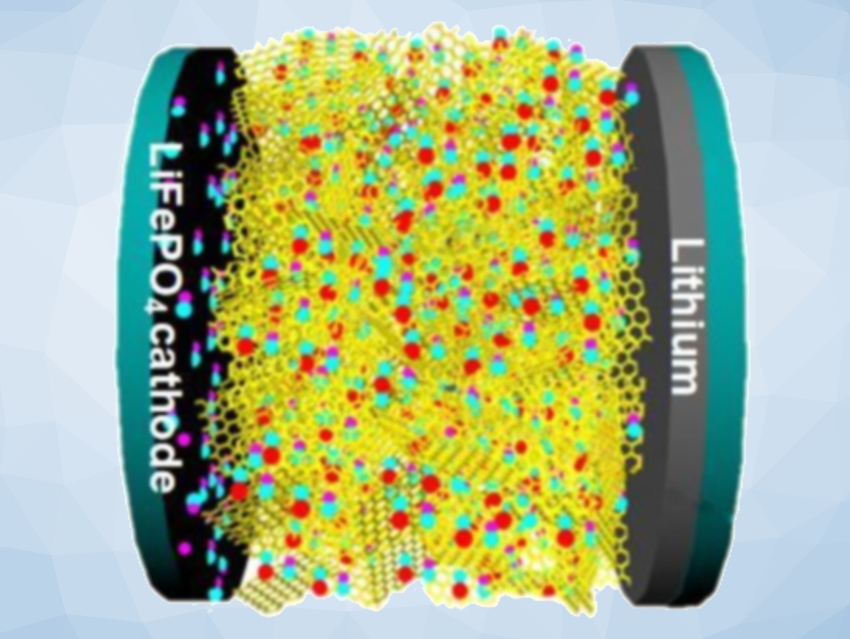Lithium-metal batteries (LMBs) are good candidates for next-generation energy-storage systems due to their ultrahigh theoretical capacity. However, their practical application is hindered by safety issues: The formation of lithium dendrites during repeated charge/discharge processes can result in short circuits or even explosions.
Yunsheng Ye, Huazhong University of Science and Technology, Wuhan, China, and colleagues have developed a new class of quasi-solid-state electrolyte (QSSE) for safer LMBs. The electrolyte consists of an ionic-liquid functional covalent triazine-based framework (IL-fCTF, pictured below) and a lithium-based ionic liquid (LIL, pictured below). The covalent framework was synthesized using a low‐temperature polycondensation approach, followed by a nucleophilic N-alkylation. The framework was then mixed with the LIL, which consists of LiTFSI and [Bmim][TFSI] (TFSI = bis(trifluoromethane)sulfonimide, Bmim = 1‐butyl‐3‐methylimidazolium), to obtain the desired QSSE.
.jpg)
The team used the developed QSSE in LMBs, which showed high room-temperature ionic conductivity, good cycling stability, and good rate capacity. The electrolyte improves the safety of LMBs due to the near-total resistance to Li dendrite growth caused by its robust skeleton, as well as the use of non-flammable ionic liquids. These results show the promise of porous organic polymeric materials for energy-storage systems.
- Functional Covalent Triazine Frameworks-Based Quasi-Solid-State Electrolyte Used to Enhance Lithium Metal Battery Safety,
Qing Xuan Shi, Xin Guan, Hui Jie Pei, Chen Chang, Hao Qu, Xiao Lin Xie, Yun Sheng Ye,
Batteries Supercaps 2020.
https://doi.org/10.1002/batt.202000069




